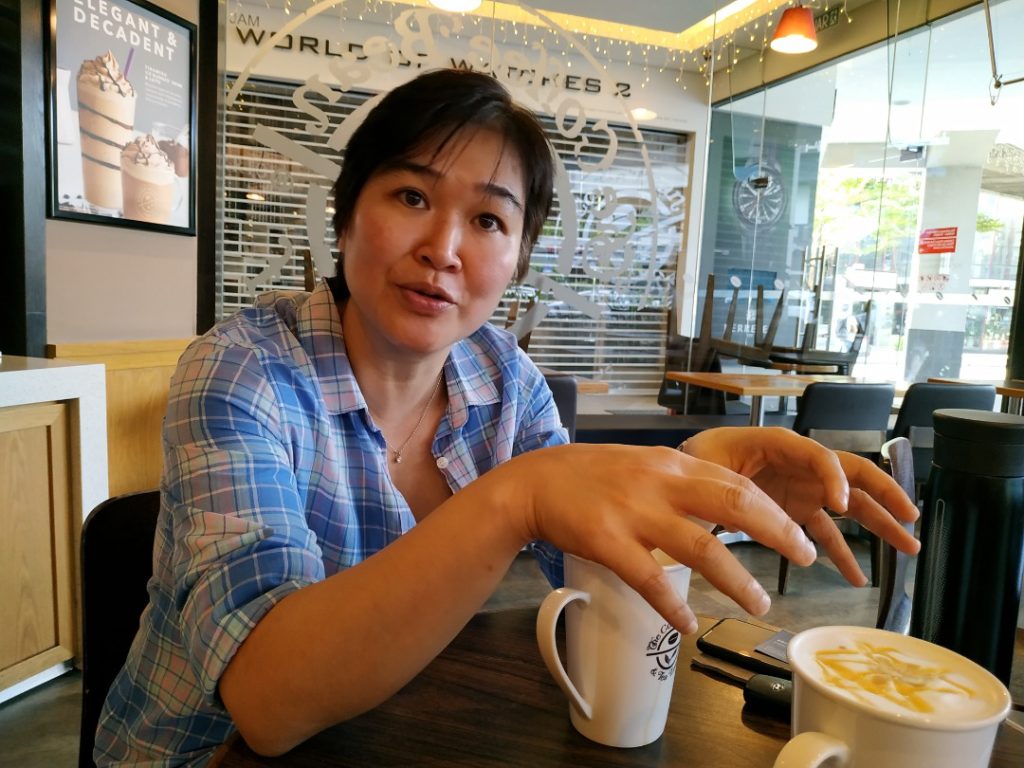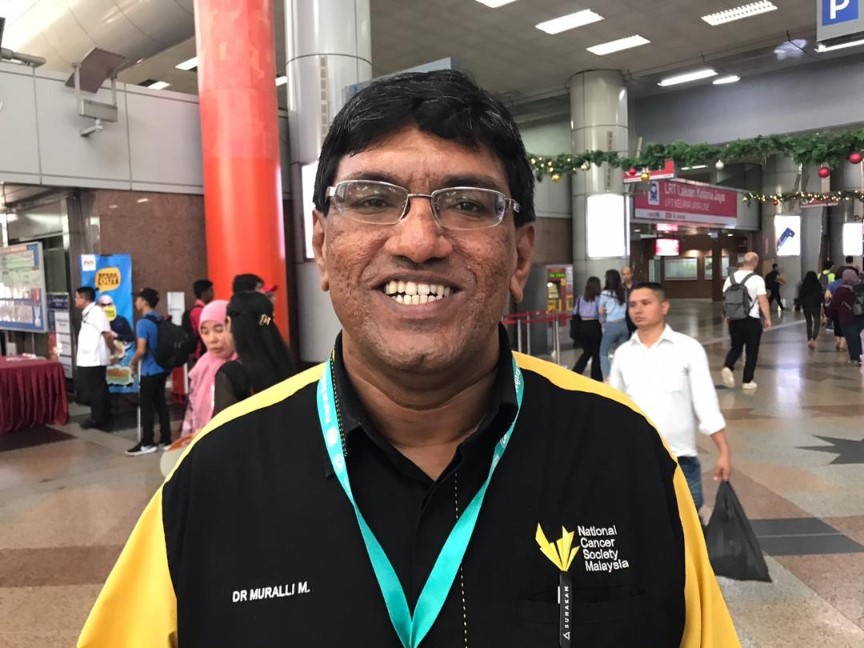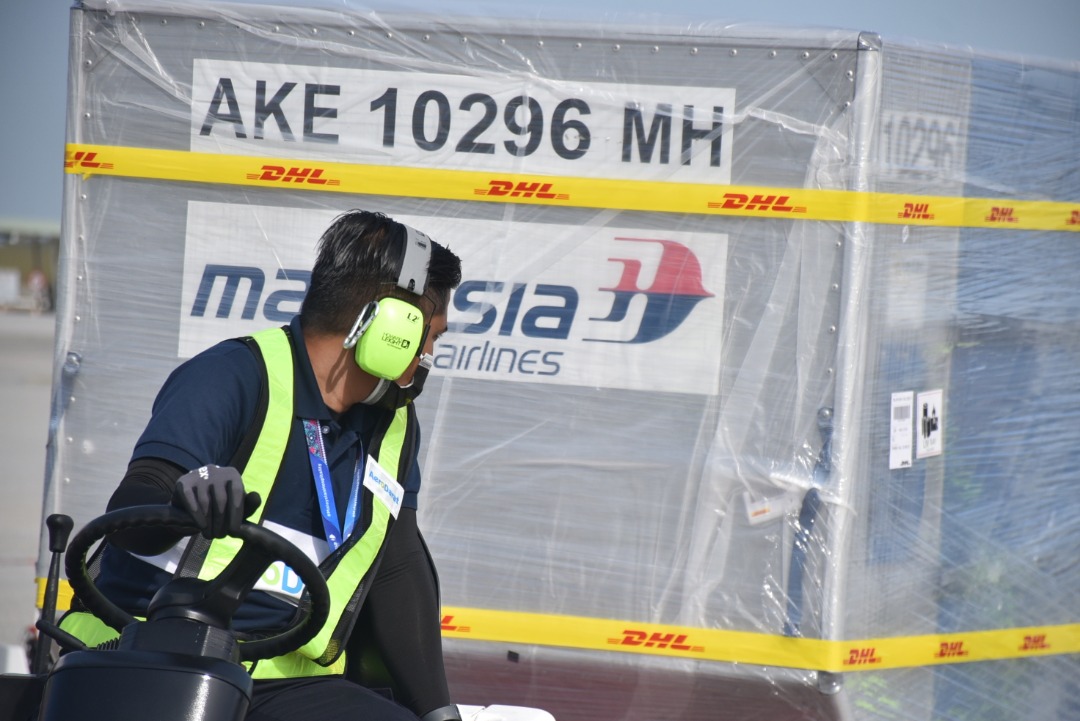KUALA LUMPUR, Feb 24 — Some advocates have disputed the Ministry of Health’s (MOH) recommendation not to give Covid-19 vaccines, including the Pfizer-BioNTech shot, to people undergoing active cancer treatment.
Dr Lim Teck Onn, committee member of Together Against Cancer (TAC), said his cancer group supported the Covid-19 vaccination of cancer patients on active treatment, citing recommendations by the United States’ Centers for Disease Control and Prevention (CDC) and the US’ National Comprehensive Cancer Network (NCCN).
“The CDC, the NCCN, and other cancer organisations say that cancer patients are a high-priority group for vaccination,” Dr Lim told CodeBlue yesterday.
Dr Steven Pergam from the Fred Hutchinson Cancer Research Center in Seattle told the US’ National Cancer Institute earlier this month that the CDC and NCCN listed cancer patients as a high-priority group for Covid-19 vaccination because cancer patients were at high risk for getting severe complications from Covid-19.
He, however, listed two groups of patients undergoing active cancer treatment who should delay Covid-19 vaccination: those who just had a stem cell transplant or received CAR T-cell therapy, as well as those starting initial therapy for leukaemia.
Malaysia’s MOH listed on its Covid-19 website individuals undergoing chemotherapy, radiotherapy, and immunotherapy among those who are not suitable to receive Pfizer-BioNTech’s mRNA vaccine.
Health deputy director-general Dr Hishamshah Mohd Ibrahim reportedly said cancer survivors who underwent their final treatment three to six months before getting a Covid-19 shot could receive the vaccines. However, he advised cancer patients not to get vaccinated until their treatment is complete.
TAC wrote last Monday that patients with haematological cancers and those undergoing active cancer treatment, with poor immune systems, faced high risk of developing severe Covid-19 disease and would benefit from coronavirus vaccination.
“Contrary to the ‘well’ cancer patients that can be vaccinated wholesale in community centres like everyone else in Phase Two of the immunisation programme, these high-risk patients require specialised attention and individualised recommendations for vaccination based on the timing and type of treatments they are undergoing.
“These patients should be vaccinated based on recommendations from their oncologists,” said TAC vice-president and senior consultant breast surgeon Prof Dr Nur Aishah Mohd Taib, Universiti Malaya Medical Centre (UMMC) senior consultant oncologist Prof Ho Gwo Fuang, UMMC senior consultant haematologist Prof Gan Gin Gin, and TAC president Wong Kuan Sing in a joint letter.
Cancer Patients Not A Homogeneous Group

UMMC consultant obstetrician and gynaecologist Dr Woo Yin Ling said not all cancers were the same and cancer patients should not be considered as one homogeneous group.
“The question is whether or not the cancer patient at the point of receiving the vaccine is immunocompromised,” Dr Woo told CodeBlue.
“If their blood count is low, the vaccine won’t be effective. Just as with people living with HIV, it is highly recommended that they get priority in receiving vaccination. However, if at the time of getting the vaccine, their CD4 (protein found on immune cells) count is low, they won’t mount an immune response.”
She stressed, however, that there are many cancer patients on long-term immunotherapy who take their treatment in tablet form and should be considered for Covid-19 vaccination, upon guidance from their oncologist.
“Each patient needs to assess their risk or benefits from Covid vaccination along with their doctors,” said Dr Woo, who is also a subspecialist in gynaecological oncology. “Do not just deny themselves of the vaccine.”
Covid-19 Vaccination May Reduce Efficacy Of Cancer Therapy

National Cancer Society of Malaysia (NCSM) medical director Dr M. Murallitharan said NCSM believed it was better for patients on active cancer treatment not to receive Covid-19 vaccines due to possible interference with ongoing cancer therapy.
“There is no data suggesting otherwise at this point of time and this recommendation is based on current global data and expert advisory,” Dr Murallitharan told CodeBlue.
“If adequate evidence comes into play which suggests that some vaccines may be safe and effective for patients on active treatment, then we will, of course, recommend vaccination for active patients based on that evidence. However, in that case, it well might be that the only suitable vaccines for patients on active treatment at the time are mRNA vaccines.
“For patients not on active treatment, caregivers and family members — we don’t think there will be any distinguishing differences in terms of efficacy and safety between any government approved vaccines. Thus, we would recommend receiving any of the approved vaccines.”
The European Society for Medical Oncology (ESMO) noted that the World Health Organization (WHO) and the United States list cancer patients as a second priority group for Covid-19 vaccination, while Australia places health care professionals, the elderly, and people with comorbidities like cancer as first priority for vaccination.
Europe, the United Kingdom, and France, ESMO noted, base vaccination recommendation priorities on age before underlying medical conditions like cancer.
“ Consequently, vaccination seems essential to protect survivors along with patients in the chronic phase of their cancer without active treatment,” said ESMO.
“The question is more uneasy in patients with active disease on anticancer therapy for whom vaccination could have reduced efficacy or adverse events.”
ESMO proposed a four-step process in deciding whether various groups of patients with cancer should get vaccinated against Covid-19, such as considering the phase of disease and therapy; the person’s age and other comorbidities as Covid-19 risk factors; vaccine-related interactions on the tumour and treatment efficacy; and securing informed consent.








